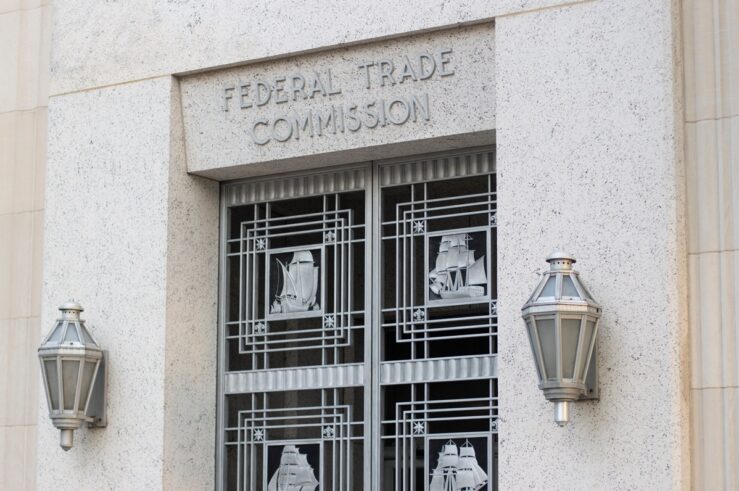Showing archive for: “Antitrust”
The FTC Takes Action to Raise Wine and Spirit Prices
In a 3-2 party-line vote, a divided Federal Trade Commission (FTC) moved Dec. 18 to seek a federal district court injunction against Southern Glazer’s Wine and Spirits LLC, the largest U.S. distributor of wines and spirits. The FTC complaint alleges that Southern’s discounting practices discriminated against small independent businesses, violating the Robinson-Patman Act (RPA), to ... The FTC Takes Action to Raise Wine and Spirit Prices
Antitrust at the Agencies Roundup: Rounding up the Roundups
It’s Not All About Price, Except When We Say So I don’t know if this is the end of an era, the end of an error, a bit of both, or something far more complicated than that, but let’s start with Federal Trade Commission (FTC) Commissioner Melissa Holyoak’s dissent in In the Matter of Southern ... Antitrust at the Agencies Roundup: Rounding up the Roundups
Labor Antitrust: A Solution in Search of Evidence
The growing focus on labor-market power and antitrust enforcement has sparked important debates about both the empirical foundations and practical implementation of these emerging policy priorities. In a recent piece for ProMarket, Eric Posner argues that overwhelming academic evidence supports expanding antitrust scrutiny of labor markets—criticizing, in particular, the skepticism expressed by the Federal Trade ... Labor Antitrust: A Solution in Search of Evidence
Reclaiming Antitrust
The United States is the birthplace of antitrust, starting with the enactment of the Sherman Antitrust Act in 1890. During the late 19th and early 20th century, cartels were common in Europe, while U.S. antitrust enforcers unraveled them. Only after World War II did European countries incrementally adopt competition law in various forms. Since that ... Reclaiming Antitrust
Why Trump May Consolidate Federal Antitrust Enforcement
President-elect Donald Trump’s new “Department of Government Efficiency” has been tasked with providing advice and guidance on reducing government waste and restructuring federal agencies. One act of restructuring that may warrant consideration would involve consolidating all federal antitrust enforcement within the U.S. Justice Department (DOJ). There are strong arguments that this would reduce waste. In addition, ... Why Trump May Consolidate Federal Antitrust Enforcement
Why It May Be Time to Consider a Merger Policy Reset in 2025
The Biden administration’s federal antitrust regulators—the U.S. Justice Department (DOJ) and the Federal Trade Commission (FTC)—have been widely perceived as actively discouraging mergers and acquisitions. This reflects the rejection of a longstanding bipartisan understanding that government would only oppose proposed M&A transactions that are likely to harm competition. The Biden approach arguably threatens to harm the ... Why It May Be Time to Consider a Merger Policy Reset in 2025
Clarifying Antitrust Law by Straightening Teeth
More than a century ago, the U.S. Supreme Court held that the Sherman Act does not interfere with the “unquestioned right to stop dealing,” but the legacy of the Aspen Skiing is that terminating voluntary cooperation with a rival can give rise to liability. A case now on appeal could determine whether the “right to ... Clarifying Antitrust Law by Straightening Teeth
Assessing the Government’s Monopolization Case Against Visa
The U.S. Justice Department (DOJ) has initiated an antitrust monopolization case against Visa for various practices related to its debit-card services. The complaint centers on two primary theories of harm. The first is that Visa offers volume discounts in a manner that locks in merchant banks (or “acquirers”) into Visa’s debit-card network, which deprives rival ... Assessing the Government’s Monopolization Case Against Visa
Weighing DOJ’s Proposed Remedies for Google’s Monopolization
The U.S. Justice Department (DOJ) has proposed remedies to a federal judge who held that Google illegally monopolized web search. In reviewing the DOJ’s recommendations, the judge should take into account the downsides of particular remedies, as well as their potential benefits. The judge should be careful not to impose remedies that could reduce innovation ... Weighing DOJ’s Proposed Remedies for Google’s Monopolization
A Tale of Two App Stores
Dueling federal antitrust holdings dealing with app stores could have significant impacts on the future of competition in mobile-internet services. Going forward, antitrust policy in this area should focus on promoting consumer welfare and innovation, rather than the interests of particular competitors. App Store Basics Google and Apple compete vigorously for consumer favor in smartphones. ... A Tale of Two App Stores
Antitrust at the Agencies: PBM Madness at the FTC, Part 2
As I noted in my last post, the Federal Trade Commission (FTC) announced Sept. 20 that it had filed a complaint: against the three largest prescription drug benefit managers (PBMs)—Caremark Rx, Express Scripts (ESI), and OptumRx—and their affiliated group purchasing organizations (GPOs) for engaging in anticompetitive and unfair rebating practices that have artificially inflated the ... Antitrust at the Agencies: PBM Madness at the FTC, Part 2
FTC Sues ‘Big 3’ Pharmaceutical Benefit Managers
My last post highlighted a July 2024 Federal Trade Commission (FTC) interim staff report that was critical of pharmaceutical benefit managers (PBMs)—so-called “middlemen” firms that specialize in negotiating with drugmakers for rebates on the list prices of drugs. I explained that the interim report’s analysis is at odds with economic research that delineates the substantial economic benefits ... FTC Sues ‘Big 3’ Pharmaceutical Benefit Managers
















